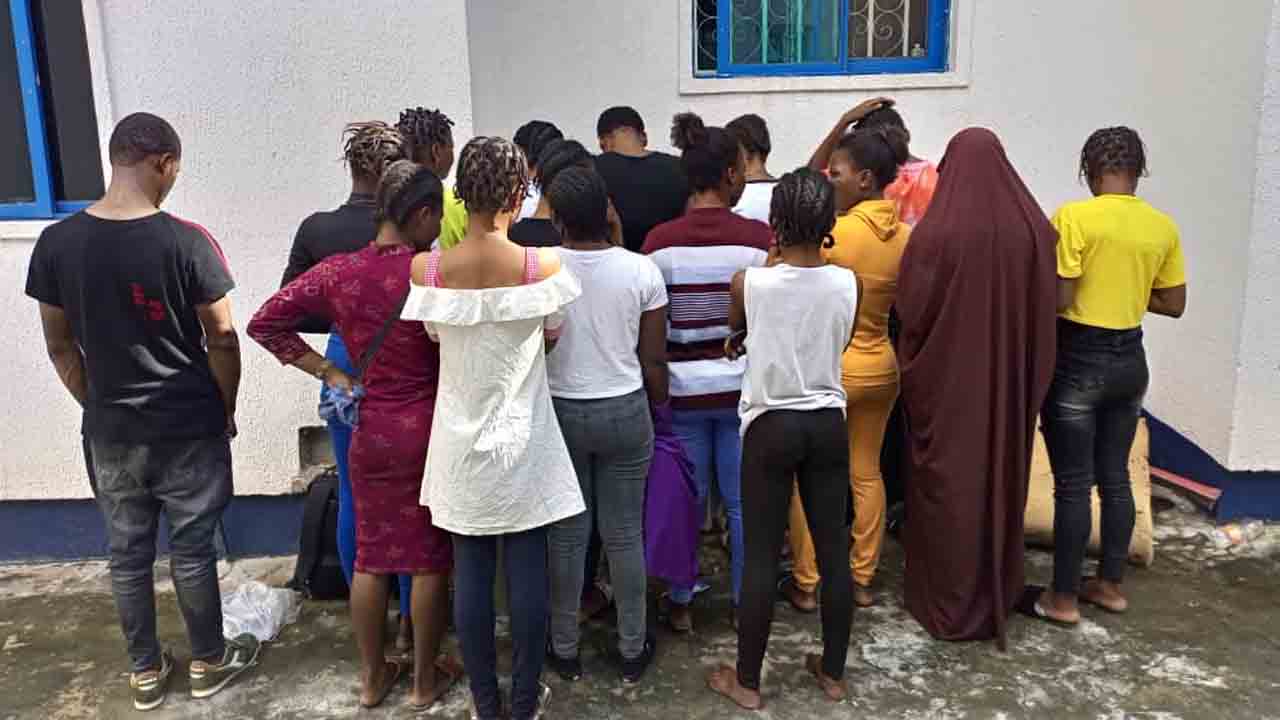A report has highlighted the suffering faced by Nigerian women serving as domestic workers in Iraq, a country they initially believed to be their “El Dorado.”
Al Jazeera documents the story of Agnes (not her real name), a 27-year-old woman who left Ekiti State for Iraq after agents promised her a dream life. These agents reportedly earn $500 for every woman they traffic on behalf of recruitment firms in Iraq.
Speaking about the recruitment scheme, “It’s a form of modern slavery,” said Damilola Adekola, co-founder of Hopes Haven Foundation, a Nigerian NGO that helps track trafficked women.
“Once they hear they can get on an airplane, they just jump at the opportunity,” he added.
In Iraq, the women sign contracts that assign them to families or labour-intensive institutions. A worker like Agnes might earn $200 or $250 per month for working up to 20 hours a day. Many of them, however, are owed salaries, go days without food, and endure other horrible conditions.
Agnes reported being raped at gunpoint by her employer, who forced her to have an abortion after she became pregnant, resulting in severe abdominal pain.
“I just want to go home and treat myself, but I can’t do that,” Agnes said in a phone call from Basra, where she is confined to a hostel owned by the recruiting firm that brought her from Nigeria last year.
“The man has refused to pay my salary. I don’t know if I am pregnant, but I have not seen my menstruation since then. I just want to go home and check myself and see what’s happening inside me,” she added, her voice breaking.
Another victim, 28-year-old Eniola, arrived in Baghdad in February 2023, hopeful for a better life. Instead, she found herself limited to just four hours of sleep per day after enduring rigorous work and torture from her employer.
“She had just beaten me when she put some water on the fire and told me to enter the bathroom,” Eniola told Al Jazeera.
Fearing her boss intended to pour hot water on her, she fled. “I don’t know where I got the courage, but I ran outside,” she added.
While Eniola escaped with injuries and Agnes continues to survive, others have reportedly died due to the horrors faced in Iraq and other Middle Eastern countries that still subject black Africans to slavery.
The Middle East is not the only region where Nigerian women are trafficked. According to the National Centre for Biotechnology Information (NCBI), many end up in Italy, where they are forced into prostitution. These journeys often begin by road through Libya and involve life-threatening sea crossings to Italy.
For some women, the trafficking for sexual exploitation began in Libya; for others, it continued upon arrival in Italy. A few were referred by NGOs to authorities as victims of trafficking, sparing them from continued exploitation.
Efforts to end trafficking and sexual exploitation are being implemented by NGOs and the Nigerian government. However, a 2019 report by the U.S. Department of State placed Nigeria in Tier 2 for trafficking. This ranking indicates that while Nigeria does not fully meet minimum standards for eliminating trafficking, it is making significant efforts.
The report noted increased convictions of traffickers and new state-level initiatives, such as Edo State’s anti-trafficking law and the establishment of task forces in Delta and Ondo states. However, it also highlighted areas needing improvement.
In May 2023, the National Agency for the Prohibition of Trafficking in Persons (NAPTIP) raised concerns about exploitative recruitment drives to Iraq. Rogue agents involved in recruiting and “selling” women are reportedly under investigation, according to a NAPTIP official who spoke to Al Jazeera.
The cases of Agnes and Eniola are also under investigation, but no timeline has been given for their repatriation. Nigeria lacks an embassy in Iraq, and NAPTIP is liaising with the Nigerian consulate in Jordan to assist the victims.






